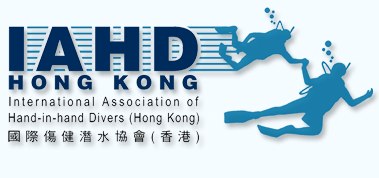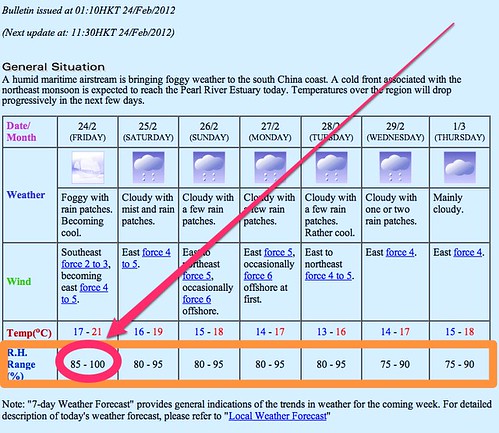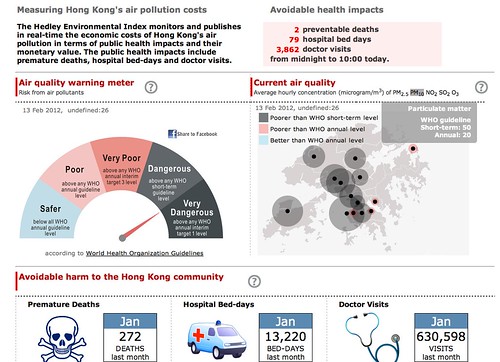Over the last years Hong Kong has experienced a boom on wine-bars, wine shops with some new business models coming through as well. For example sampling menu's, wine by the glass or by taster, get a card and "tap" as they do at California Wine Bar.
A new comer on the block, with definitely a cool concept is Portrait Wines. They import grapes from a few selected vineyards and do the whole winemaking process in Hong Kong. Winemaking takes place at their "factory" in Tsuen Wan. Besides making and bottling the wines, there is also a distillery where spirits are distilled. Pear schnapps is an example of what was available when I paid a visit to their tasting room (31 Staunton Street, Central, Hong Kong).
After a startup phase they started bringing their own wines to the market. If they were to sell to the big shops, bottles would be easy to recognize. The labels are made in a 1940's style graphics with the wines having similar themes. Definitely something different!
Their tasting room has a nice atmosphere, and a good place to pop in for a pre-dinner drink, whilst waiting for friends or anything else along those lines. Whilst being there, there are a number of tasting options if you feel in an exploration mood.
Their Rose (Farmgirl Rose) is a nice surprise and could grow quite popular. Compared to many others it is not overly sweet, and a good warm weather drink! It has a refreshing strawberry (not overpowering) and citrus aroma, with subtly dry flavors of ripe melon, peaches and red-red berries coming through.
Other red and white wines are definitely worth a try.. and to not spoil the surprises.... I will not share any more details. Pop in and enjoy :)
BLOG of Marcel Ekkel - sharing of experiences and observations whilst living and working in Asia
Monday 27 February 2012
Sunday 26 February 2012
International Association of Hand in Hand Divers Hong Kong

I am not really the kind of person who is into new years resolutions and things like that, though one topics on my "going to do list" is/was doing some work for volunteer organisations. Having been a diving instructor for some time now, I thought that doing something along those lines would be good.
There is one organisation in Hong Kong that supports people with disabilities who still want to explore the underwaterworld. The International Association of Hand in Hand Divers (Hong Kong) is a member of a global International Association of Handicapped Divers, which happened to be a Dutch organisation as well.
Today was my first encounter with the organisation and the way dive activities run. Normal divecourses are buzzing on the side, with students assembling their own gear and groups on multiple sides of the pool. Each group is lead by an instructor and sometimes a dive-master. Though in this case, there is a whole team of surface supporters. People that assemble gear, people that help the participants getting ready and so on. As not everyone is mobile, the "on deck" coordination is quite heavy to prevent chaos.
In most cases the in water work varies a fair bit as well. Try to move around if you can't move your arms or legs. How about handsignals underwater if someone can't see.....
My role today was fairly simple and straight forward, observe and lend a hand where you can. I have been doing exactly that. This included swimming/diving around the pool with some people. Nothing crazy, though it was nice to see and get some appreciation at the end.
Can't wait to get my instructor conversion sorted and run some open water and advanced courses!
UPDATE 05 March 2012: RTHK had a radio session regarding support for the disabled, a recording can be found here
Friday 24 February 2012
Hong Kong Humidity hitting 100%

During spring time (yes, it is getting there here in Hong Kong) the temperatures show a rising trend again. They can bounce up and down as can be seen in the picture above, though it gradually increases.
With that, the relative humidity definitely goes up and for months it will hover in the higher regions. Think between 80-100%. Some of the effects are that your laundry won't dry for days, condensation all over the house and dampness of clothes and bedsheets for example. Of course, as soon as you get outside, you feel sticky and sweaty already.
Even some long term effects can be seen on books (turning yellow or show mold). A remedy is placing of dehumidifiers - shops in town sell lots of small little boxes filled with chemical stuff that absorbs the humidity. Obviously, leaving behind a massive trail of waste as most of the boxes are on time usage only.
A better solution I believe is using electric dehumidifiers as they have a good capacity and are stronger as well. And indeed.. Groupon Hong Kong has had some deals coming through already.
Saturday 18 February 2012
Social Media Analytics and Regulation #SMWKHK

This week was Social Media Week in Hong Kong. A global series of events held in numerous cities with the theme.. well you might have guessed it, Social Media it is.
A whole week of events around the social media theme. Topics on how social media can be deployed, what kinds of social media there is and of course lots of sharing from people in the field. Although I didn't think the line up was very strong, there were some interesting sessions.
One of the events I attended had the topic:
Social Media Analytics & Regulation
With so much data being collected, it would be interesting to hear the state of affairs from the industry and potentially governments on data protection, privacy etc. The talk was divided in 4 sections:
- Introduction and setting the scene by Kenneth Kwok Beehive Strategy (@BeehiveStrategy) who talked about why and how social media is deployed. He touched base on the how and why of social media, and shared some interesting movies like the one below, on the Return of Investment on use of social media.
Basically use of metrics and analytics can help drive down the total cost of marketing as the marketing that is done is more effective and efficient. It obviously starts with defining what do you want to achieve from a marketing point of view. Define the goals and objectives of campaigns.
According to Kenneth the industry is working on some sort of self regulation at the moment, through for example the Hong Kong Digital Analytics Association (http://www.hkdaa.org/). Am curious to see how they will develop codes of practice for the industry.
The little bit of privacy discussion came up by showing the next video which is about Google+. The amount of data coming available to google is often raised as a point of concern for people. The old adagio: "if you don't pay for the product, YOU are the product" comes around the corner. Though, lets look at the next video..
An interesting point highlighted is the different Circles of people you hang out with, and what you would like to share with them. Google+ allows you to have more control over what ends up where. A better segregation on what you share with whom is possible. Though, a point not brought to the front is the fact that it allows Google to collect even more data around an individual. Uhh yes it is a big pitch on Google+ indeed.
- Second section was by Jeremy Smith from EmailVision, a company providing email systems and hyps of tools to support campaigns etc. He talked a little on some of the drivers companies can have (marketing, customer service, events and lead generation) to use social media. In short he did show some of the product the company runs, though no serious touching base on discussing analytics and legal impact. One point he made was measure what matters. My interpretation of that is.. the number of likes on Facebook, do they actually help achieving your goals?
- The last section was done by Dr. James She who just started a social media lab at he university of Science and Technology here in Hong Kong. Coming from an electrical and engineering background, he started of with talking about smart buildings and smart grids. How better data collection can help in forecasting utilization of buildings, and therefore can support decision making on energy conservation. People want to maintain a certain lifestyle, though this can sometimes mean a tradeoff on "savings". On that topic, I would say that there is still a significant amount of savings that can be achieved. Reduce, Reuse, Recycle can help, switching lights off on time, thinking about your temperature settings. The interesting bit comes in when there will be a link between currently used social media and other systems. To for example predict numbers of visitors for restaurants, building utilization etc etc. This will require vast amounts of data as well as hefty processing power. This data can really provide a personal profile for people. For once not only to provide targeted advertising but to improve the quality of life. A key question he put up was, who will be the owner of information. For example, if you tweet...if you write something on facebook, or when you log in using foursquare. Though it would be quite interesting to see your aircon at home switch on when you check in at a particular trainstation at a particular time.
- Section 4, was supposed to be QA though not many questions were asked.
In short, the last part of the last presentation was quite interesting though unfortunately the sessions didn't really adress the topic of the event.
Tuesday 14 February 2012
Hong Kong Air Pollution and its impact
The air quality in Hong Kong is a constant returning topic of discussion. Where does it come from, who is responsible, how do we measure it, what is good and what is bad. A major pain point is that the government only publishes the so called PM10 data which refers to the size of particles in the air. The size of those particles also determines how deep they can penetrate in the body, and thus directly related to the damage they can do. For whatever reason there is no current data published on the so called PM2.5 measurements in Hong Kong, even though this seems to be an international standard.
The effects of inhaling particulate matter that have been widely studied in humans and animals now include asthma, lung cancer, cardiovascular issues, birth defects, and premature death. The size of the particle is a main determinant of where in the respiratory tract the particle will come to rest when inhaled. Because of their small size, particles on the order of ~10 micrometers or less (PM10) can penetrate the deepest part of the lungs such as the bronchioles or alveoli.[11] Larger particles are generally filtered in the nose and throat via cilia and mucus, but particulate matter smaller than about 10 micrometers, referred to as PM10, can settle in the bronchi and lungs and cause health problems. The 10 micrometer size does not represent a strict boundary between respirable and non-respirable particles, but has been agreed upon for monitoring of airborne particulate matter by most regulatory agencies. Similarly, particles smaller than 2.5 micrometers, PM2.5, tend to penetrate into the gas exchange regions of the lung, and very small particles (< 100 nanometers) may pass through the lungs to affect other organs. In particular, a study published in the Journal of the American Medical Association indicates that PM2.5 leads to high plaque deposits in arteries, causing vascular inflammation and atherosclerosis — a hardening of the arteries that reduces elasticity, which can lead to heart attacks and other cardiovascular problems.[12] Researchers suggest that even short-term exposure at elevated concentrations could significantly contribute to heart disease. A study in The Lancet concluded that traffic exhaust is the single most serious preventable cause of heart attack in the general public, the cause of 7.4% of all attacks.[13] - source http://en.wikipedia.org/wiki/ParticulatesHong Kong government currently seems hung up on some internal processes to get legislation approved. Though, in reality it looks more like they are dragging their feet. An example can be found here, an article by Friends of The Earth describing the "recent" developments with regards to upgrading the AQO's into the 21st century. Question would be why.....
You can argue that the government benefits from creating a healthy environment where people can perform well. With Hong Kong still using expatriate talents, loosing this talent-pool could have a negative impact on things. Articles in international (UK Telegraph) and local media (SCMP) provide examples on people leaving due to the air quality. People return to their home country, or move on to arch-rival Singapore.
What is the impact on the local economy? Then University of Hong Kong its School of Public health keeps a tab on what the daily pollution levels are and translates that into the impact on the economy. The website can be found here with an example of the dashboard below:

It would be interesting to see what course of action government will take in the near future with regards to the local creation of pollution, and what cross border initiatives are developed to adress pollution coming in from mainland China.
The issue is not only a challenge for Hong Kong, people in Shanghai and Beijing are also reconsidering their options. An example is serial entrepreneur Marc van der Chijs who also wrote a blog post about it which can be read here.
Silly enough, it is something you start considering as a part of living here. Checking air-pollution levels when you are about to do some sports outdoors. Heavy smog, irritated eyes, irritated airways and other silly things. People often have sinus problems like colds etc. (yeah - blasting aircons are not helping either). "Funny" bit is that when you are out of town to areas where air quality is better, many of those things disappear within 2-3 days.
Slowly step by step awareness is growing with the people. Organisations like Hong Kong Clean Air Network, Clear the Air Network, and Friends of the Earth work on public and government level to educate and initiate action.
It would be nice if action starts at individual levels, by decreasing polluting activities. Airconditioners on "non freezing"levels, insulation of buildings to keep heat out and cold in, switch of lights when not needed etc. Lets see what will happen next....
update 23 Feb 2012: The Wall Street Journal Blog put an article up called "Hong Kong's Killer Pollution", with an interesting comment of Joanne Ooi from Clean Air Network Hong Kong referring to local traffic being a major source of pollution as well.
Subscribe to:
Posts (Atom)